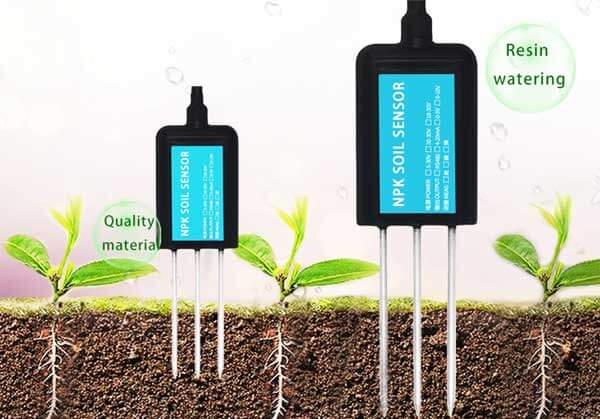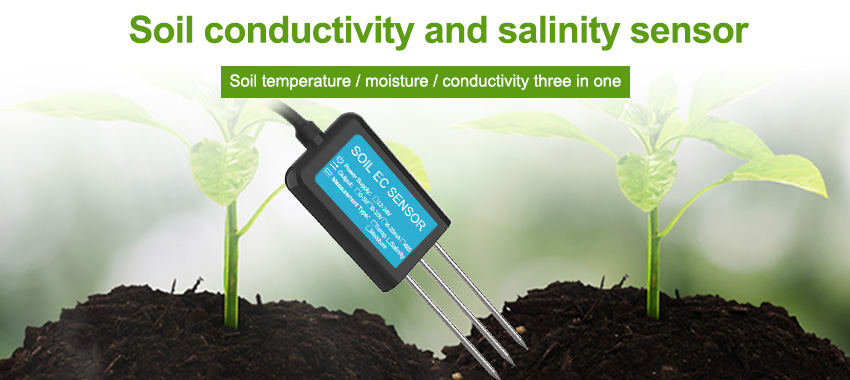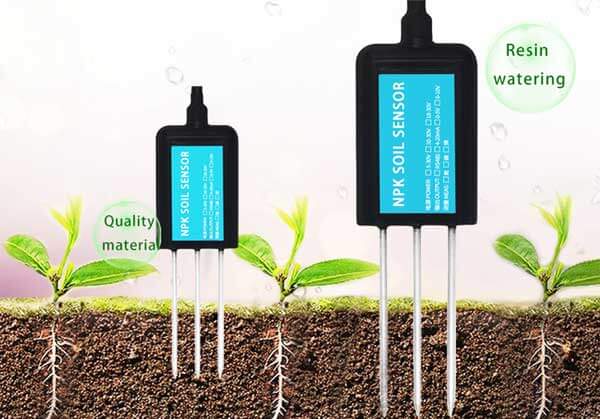Agriculture is a vital industry that feeds the world’s population. In the face of climate change, resource scarcity, and population growth, there is an increasing need to optimize agricultural practices and improve productivity. Soil sensor technology has emerged as a revolutionary tool in modern agriculture, enabling farmers to make informed decisions based on real-time data about soil conditions. This article explores the importance of soil sensor technology in revolutionizing agriculture and highlights its potential benefits in sustainable farming.

Understanding Soil Sensors:
Soil sensors are advanced devices that measure various parameters in the soil, providing valuable insights into its health and fertility. These sensors employ cutting-edge technologies such as capacitive, resistive, or electromagnetic methods to measure soil moisture, temperature, salinity, pH levels, and nutrient content. By collecting precise and real-time data, soil sensors enable farmers to monitor and manage soil conditions more effectively.
Water is a finite resource, and efficient water management is crucial in agriculture. Soil sensors play a pivotal role in optimizing irrigation practices by providing accurate measurements of soil moisture levels. With this information, farmers can determine the precise amount and timing of irrigation, avoiding over-watering or under-watering of crops. By minimizing water wastage and ensuring optimal soil moisture, soil sensors contribute to water conservation efforts and promote sustainable farming practices.
Improving Nutrient Management:
Proper nutrient management is essential for crop growth and yield. Soil sensors provide critical data on nutrient levels in the soil, allowing farmers to make informed decisions regarding fertilization. By monitoring the nutrient content in real-time, farmers can apply fertilizers precisely where and when needed, reducing waste and environmental contamination. This targeted approach to nutrient management not only enhances crop productivity but also minimizes the ecological impact of excessive fertilizer use.
Preventing Soil Degradation:
Soil erosion and degradation pose significant challenges to agriculture. Soil sensors assist in preventing such degradation by monitoring soil moisture levels, preventing over-irrigation that can lead to soil erosion. Additionally, these sensors can detect salinity levels in the soil, enabling early intervention to prevent salt buildup that can render the soil infertile. By providing timely information on soil conditions, soil sensors contribute to sustainable soil management practices, preserving soil health for future generations.
Enhancing Crop Health and Disease Management:
Crop health and disease management are critical for maximizing yields. Soil sensors enable farmers to monitor soil temperature and humidity, which are key factors influencing plant health. By detecting deviations from optimal conditions, farmers can take preventive measures to mitigate the risk of diseases and pests. Additionally, soil sensors can measure pH levels, providing insights into soil acidity or alkalinity, which can impact nutrient availability to plants. By maintaining appropriate soil pH, soil sensors support healthy plant growth and minimize susceptibility to diseases.
Precision Agriculture and Data-Driven Decisions:
Soil sensors form a crucial component of precision agriculture, where data-driven decision-making is central to optimizing agricultural practices. By collecting and analyzing soil data, farmers can create detailed soil maps, delineating variations in soil types and characteristics within their fields. This information allows for targeted interventions, such as varying seeding rates or fertilizer application according to specific soil conditions. The integration of soil sensors with other agricultural technologies, such as GPS-guided machinery, enables precise and efficient farming operations.
Sustainable and Responsible Farming:
Soil sensor technology promotes sustainable and responsible farming practices. By optimizing irrigation, nutrient management, and pest control, farmers can reduce their environmental footprint while maintaining or improving crop yields. Additionally, by using soil sensors to monitor soil health indicators, farmers can implement regenerative farming practices that enhance soil fertility, sequester carbon, and promote biodiversity. Soil sensor technology empowers farmers to embrace sustainability and work towards resilient agricultural systems.

Conclusion:
Soil sensor technology is revolutionizing agriculture by providing real-time, accurate data on soil conditions. By optimizing irrigation, nutrient management, and disease control, farmers can enhance crop productivity while minimizing resource wastage and environmental impact. The integration of soil sensors with precision agriculture techniques enables targeted interventions and efficient farmi
